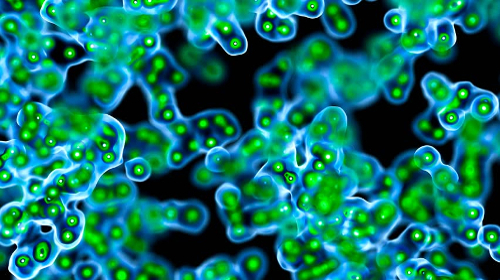Quantitative Bioscience at the University of Tennessee
Microbial Ecosystem Modeling

Microbes are found in almost all aquatic and terrestrial environments and are associated with all species of plants and animals. Microbes function in complex communities, from dozen of species in extreme environments to many hundreds or tens of thousands per gram of soil. The work of microbial ecosystem modeling is to understand the underlying mechanisms that determine ecosystem function in microbial communities. Analysis of microbial communities could include, for example, quantification of fluxes through pathways for nutrient resources and energy, identification of interactions of populations with each other and their environment, and inference of higher-order system properties. Mathematical models can provide a deep understanding of microbial community dynamics.
| Researcher | Department | Research Interests | |
|---|---|---|---|
 | Michael J. Blum | Ecology & Evolutionary Biology | Aquatic ecology, socioecology, sustainability, conservation biology |
 | Alison Buchan | Microbiology | Molecular microbial ecology, bacterial aromatic compound catabolism, marine microbiology |
 | Terry C. Hazen | Governor's Chair for Environmental Biotechnology; Civil & Environmental Engineering; Earth and Planetary Sciences; Microbiology | Environmental microbiology, systems biology approach to bioremediation, bioenergy and water quality, genomics |
 | Stephanie Kivlin | Ecology & Evolutionary Biology | Ecosystem ecology, microbial ecology, global change |
 | Frank Löffler | Governor's Chair for Microbiology and Civil and Environmental Engineering; Microbiology | Environmental microbiology and microbial ecology, microbial bioremediation, genomics |
 | David Talmy | Microbiology | Ocean microbial ecology & biogeochemistry |
 | Steven Wilhelm | Microbiology | Molecular ecology of viruses, bacteria and algae in oceans and large lakes |
NIMBioS
1122 Volunteer Blvd., Suite 106
University of Tennessee
Knoxville,
TN 37996-3410
PH: (865) 974-9334
FAX: (865) 974-9461
Contact NIMBioS


